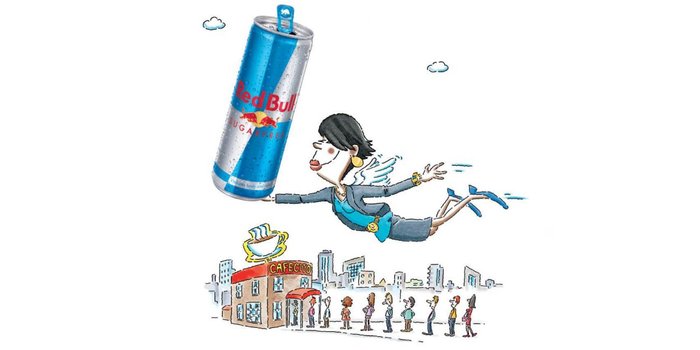Airborne gets caught by its own fake science. Airborne agreed to pay $23.3 million to settle a lawsuit. Splenda doesn't come from sugar. But, as the Sugar Association uncovered, Splenda wasn’t really “made from sugar,” because it's actually a chemical compound heavily processed in a factory. Sadly, New Balance shoes don't make you lose weight. Back in 2010, Kellogg erroneously claimed that Rice Krispies had “immune-boosting properties,” allegedly because of the antioxidants, vitamins and minerals that the breakfast cereal was fortified with. In reality, Volkswagen had been cheating on its emissions tests for more than seven years. This one’s an especially interesting case. Red Bull eventually settled for a $13 million payment, but said: “Red Bull settled the lawsuit to avoid the cost and distraction of litigation. However, Red Bull maintains that its marketing and labeling have always been truthful and accurate, and denies any and all wrongdoing or liability.” If you’re interested in learning more about the legal framework for truth in advertising, so you can walk the line as closely as possible without creating problem for your brand, the Federal Trade Commission has a helpful outline on the subject.

Opinions expressed by Entrepreneur contributors are their own.
New entrepreneurs are often tempted to exaggerate what new products or services are capable of. No wonder: Presented to a powerful investor, a stretch of the truth just might help land that series A funding.
And, less seriously, a bit of marketing flair or showmanship, in many cases, will help an entrepreneur accomplish his or her without many repercussions.
But, in other cases, if you’re that entrepreneur who is caught deliberately misleading investors or consumers, you could face false advertising charges — and the ruin of your brand’s reputation. Consider these six examples:
1. Airborne gets caught by its own fake science.
Back in the 1990s, the herbal supplement Airborne was all the rage. Packed with vitamins and minerals, it was pushed by marketers as being capable of preventing or mitigating common illnesses like the cold and flu. Eventually, the Center for Science in the Public Interest (CSPI) stepped in to test the claims of the manufacturers, discovering that there was no real scientific evidence to back up the claims. Airborne agreed to pay $23.3 million to settle a lawsuit.
2. Nope. Splenda doesn’t come from sugar.
In the early 2000s, then-new artificial sweetener Splenda engaged in a marketing campaign with the tagline, “Made from sugar, so it tastes like sugar,” to convert consumers of other artificial sweeteners as well as sugar purists hesitant to consume anything artificial.
But, as the Sugar Association uncovered, Splenda wasn’t really “made from sugar,” because it’s actually a chemical compound heavily processed in a factory. The association filed suit, which was eventually settled out of court in a confidential settlement. Splenda rival Equal was also outraged at the claims; it took Splenda to court in 2007 and also reached a confidential settlement.
3. Sadly, New Balance shoes don’t make you lose weight.
Back in 2011, New Balance introduced a new line of shoes it claimed…

COMMENTS